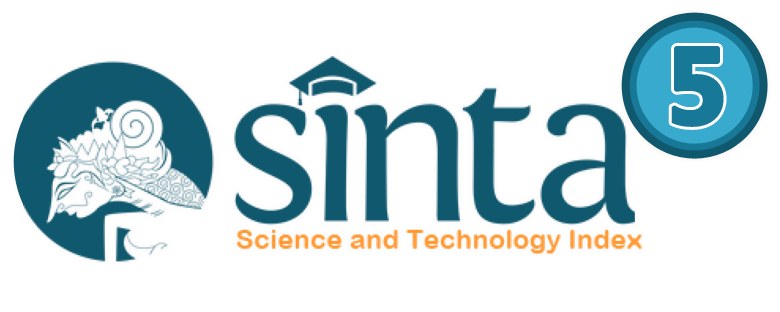Collaborative Governace Dalam Pengentasan Kemiskinan Melalui Pengembangan Desa Perempuan Indonesia Maju Mandiri (Desa PRIMA) di Yogyakarta
Abstract
Abstract, This study aims to determine collaborative governance in poverty alleviation through the development of the Indonesian Women Maju Mandiri village (PRIMA Village) in Yogyakarta seen from the Networked Structure (network structure), Commitment to a Common Purpose (Commitment to Goals), Trust between Participants believe). participants), Governance (Clarity among Governance), Access to Authority (Access to Authority), Distributive accountability/responsibility (Sharing accountability and responsibility), Information Sharing, Access to Resource (Access to Information Resources). As well as the factors that influence collaborative governance in poverty alleviation through prima villages. The research data were collected through a systematic literature review. The results of the research show that (1) The network structure in collaborative organizational governance is organic. (2) Commitment to a Common Goal (Commitment to a Purpose) can strengthen ownership and ownership in collaborative governance processes. (3) Trust Among Participants (Mutual Trust among participants), the foundation of trust is a shared understanding of what can be achieved collectively together. (4) Prima Village is managed with clear governance. It is clear who the perpetrators are and the mechanism of accountability is clear. (5) Access to Authority/Access to tasks, division of responsibilities of each actor involved is reflected through the preparation of clear management. (6) Accountability/distributive responsibility, there is a clear arrangement regarding the accountability mechanism through the making of management. (7) Information Sharing, the private sector provides information on prime government and village markets, this creates difficulties in the market. (8) Access to Resources (access to Resources) There must be availability and availability of resources for each stakeholder involved. The suggestions given are (1) It is necessary to make a joint agenda in the collaboration of prime village management in DIY. (2) There needs to be support from the private sector to integrate their raw materials with prime village products to support market sustainability.
Keywords: Collaborative Governance, Poverty, Prima Village
Abstrak, Penelitian ini bertujuan untuk mengetahui collaborative governance dalam pengentasan kemiskinan melalui pengembangan desa Perempuan Indonesia Maju Mandiri (Desa PRIMA) di Yogyakarta dilihat dari Networked Structure (struktur jaringan), Commitment to a Common Purpose (Komitmen Terhadap Tujuan), Trust among Participants (adanya saling percaya diantara peserta), Governance (Kejelasan dalam Tata Kelola), Access to Authority (Akses terhadap Kewenangan), Distributive accountability/responsibility (Pembagian akuntabilitas dan responsibilitas), Information Sharing (Sharing Informasi), Access to Rersources (Akses ke Sumber Informasi). Serta factor-faktor yang mempengaruhi collaborative governance dalam pengentasan kemiskinan melalui desa prima. Data penelitian ini dikumpulkan melalui sistematik literature review. Hasil penelitian menunjukkan bahwa (1) Network structure (structure networl) pada organisasi collaborative governance bersifat organic. (2) Commitmen to a Common Purpose (Komitmen Terhadap Tujuan) dapat menguatkan kepemilikan dan sense of belong to pada proses collaborative governance. (3) Trust Among Participant (Saling Percaya diantara peserta), landasan kepercayaan adalah adanya pemahaman bersama tentang apa yang secara kolektif dapat dicapai secara bersama-sama. (4) Desa Prima dikelola dengan tata kelola yang jelas. Jelas siapa partisipannya dan jelas mekanisme pertanggung jawabannya. (5) Access to Authority/ Akses terhadap kewenangan, Pembagian tanggung jawab kepada masing-masing actor yang terlibat dicerminkan melalui penyusunan kepengurusan yang jelas. (6) Distributive accountability/responsibility, sudah ada penataan yang jelas mengenai mekanisme pertanggung jawabannya melalui penyusunan kepengurusan. (7) Information Sharing, Sektor private memberikan informasi pasar kepada pemerintah dan desa prima, hal ini memberikan kemudahan dalam keberlanjutan pasar. (8) Access to resources (akses ke Sumber Daya) Harus ada kejelasan dan ketersediaan sumberdaya untuk masing-masing stakeholder yang terlibat. Saran yang diberikan adalah (1) Perlu dibuat agenda bersama dalam kolaborasi pengelolaan desa prima di DIY. (2) Perlu ada support dari sector private untuk mengintegrasikan bahan baku mereka dengan produk desa prima untuk menunjang keberlangsungan pasar.
Kata kunci: Collaborative Governance, Kemiskinan, Desa Prima
Keywords
Full Text:
PDFDOI: https://doi.org/10.52447/ijpa.v7i1.4649
Refbacks
- There are currently no refbacks.







